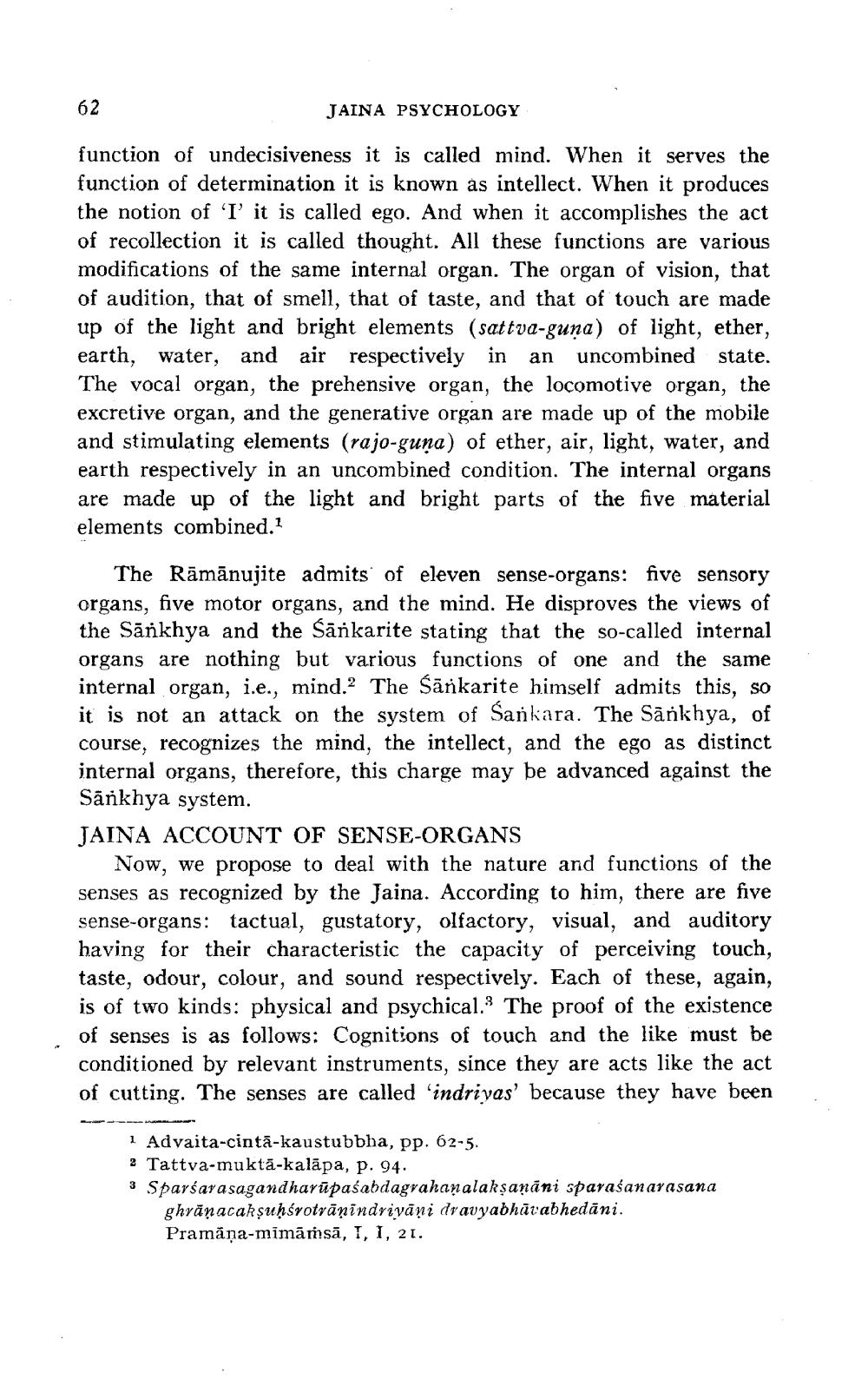________________
62
JAINA PSYCHOLOGY
function of undecisiveness it is called mind. When it serves the function of determination it is known as intellect. When it produces the notion of 'I' it is called ego. And when it accomplishes the act of recollection it is called thought. All these functions are various modifications of the same internal organ. The organ of vision, that of audition, that of smell, that of taste, and that of touch are made up of the light and bright elements (sattva-guna) of light, ether, earth, water, and air respectively in an uncombined state. The vocal organ, the prehensive organ, the locomotive organ, the excretive organ, and the generative organ are made up of the mobile and stimulating elements (rajo-guna) of ether, air, light, water, and earth respectively in an uncombined condition. The internal organs are made up of the light and bright parts of the five material elements combined.
The Rāmānujite admits of eleven sense-organs: five sensory organs, five motor organs, and the mind. He disproves the views of
e Sānkhya and the Sankarite stating that the so-called internal organs are nothing but various functions of one and the same internal organ, i.e., mind.2 The Sārkarite himself admits this, so it is not an attack on the system of Sankara. The Sānkhya, of course, recognizes the mind, the intellect, and the ego as distinct internal organs, therefore, this charge may be advanced against the Sānkhya system. JAINA ACCOUNT OF SENSE-ORGANS
Now, we propose to deal with the nature and functions of the senses as recognized by the Jaina. According to him, there are five sense-organs: tactual, gustatory, olfactory, visual, and auditory having for their characteristic the capacity of perceiving touch, taste, odour, colour, and sound respectively. Each of these, again, is of two kinds: physical and psychical.: The proof of the existence of senses is as follows: Cognitions of touch and the like must be conditioned by relevant instruments, since they are acts like the act of cutting. The senses are called 'indriyas' because they have been
1 Advaita-cintā-kaustubbha, pp. 62-5. 2 Tattva-muktā-kalāpa, p. 94. 3 Sparśava sagandharūpaśabdagrahanalaksanāni sparaśanarasana
ghrānacakṣuḥśrotrāṇindrivāni dravyabhāvabhedāni. Pramăņa-mimāṁsā, I, 1, 21.




